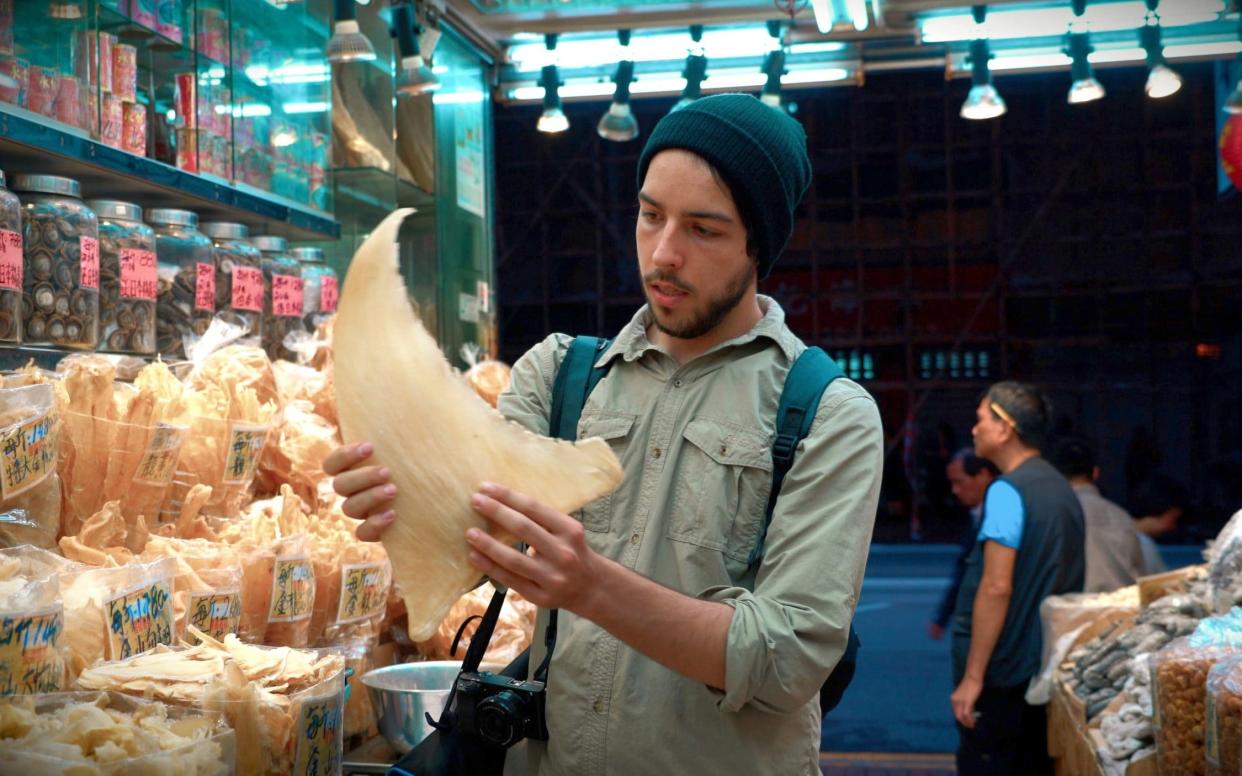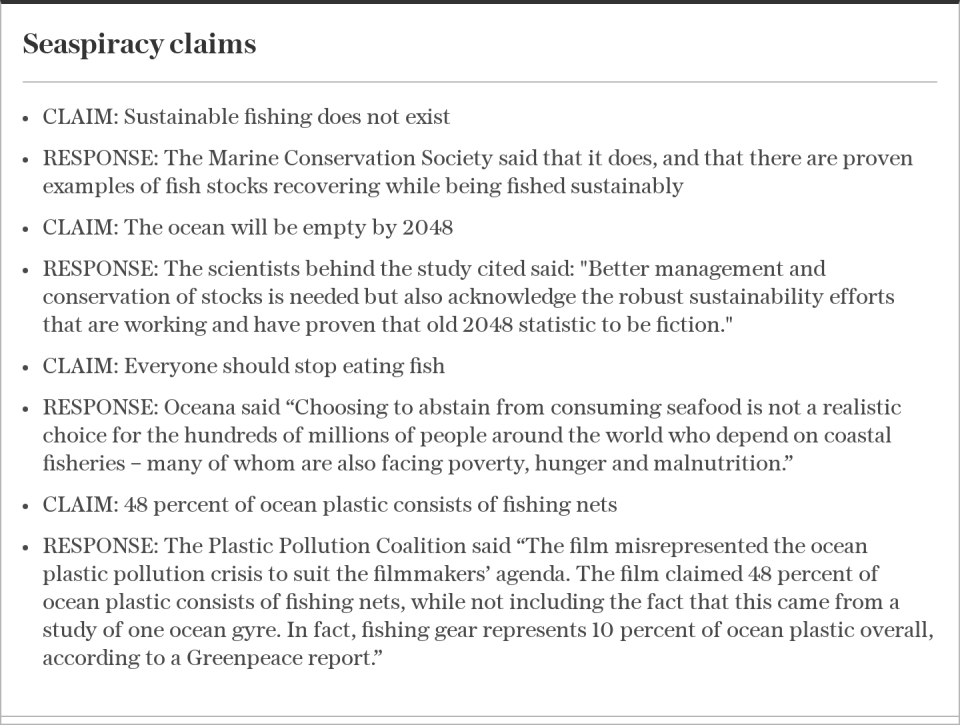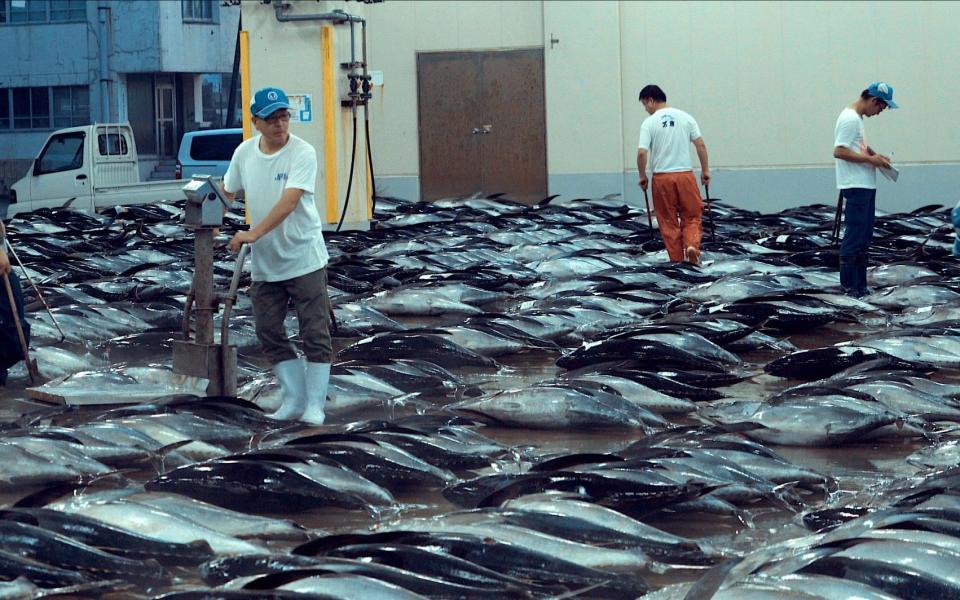Netflix documentary Seaspiracy under fire from scientists

Seaspiracy, the latest popular Netflix documentary, has come under fire from scientists and marine experts for 'cherry picking' evidence and misrepresenting their views.
The hard-hitting 90-minute film, by the team behind Leonardo Di Caprio produced Cowspiracy and the brainchild of 27-year-old Ali Tabrizi from Kent, has caused many to swear off fish forever.
Stomach-churning footage of plastic pollution and dead sea creatures has caused the show to rocket to the top of the Netflix charts, and it is number four on the streaming service in the UK and in the top ten in 29 other countries.
Celebrities have urged their followers to back the film, with Canadian rocker Bryan Adams telling his fans to stop eating fish on the basis of the film. Singer Anne-Marie told hers to watch it, while Chris Froome, the seven Grand Tour-winning British cyclist, tweeted that “my mind has been blown” by the film.
However, scientists and those quoted in the documentary have spoken out, arguing that it misrepresented the facts.

An executive with the international organisation responsible for the Dolphin Safe tuna label, Mark Palmer, said he was asked if he could guarantee no dolphins were killed by fisheries certified as Dolphin Safe.
He said: “I answered there are no guarantees in life but that drastically reducing the number of vessels intentionally chasing and netting dolphins as well as other regulations in place, that the number of dolphins that are killed is very low.
“The film took my statement out of context to suggest that there is no oversight and we don’t know whether dolphins are being killed. That is not true.”
Environmental scientist Christina Hicks, who also appeared in the film, criticised it. She tweeted: "Unnerving to discover your cameo in a film slamming an industry you love and have committed your career to. I’ve alot to say about #seaspiracy- but won’t. Yes there are issues but also progress and fish remain critical to food and nutrition security in many vulnerable geographies."
The documentary also argues that sustainable fishing does not exist, and criticised the Marine Stewardship Council for its labels which give fish a sustainability rating.
The MSC responded in a statement: “Sustainable fishing does exist and helps protect our oceans.
"One of the amazing things about our oceans is that fish stocks can recover and replenish if they are managed carefully for the long-term. Examples of where this has happened and stocks have come back from the brink include the Patagonian toothfish in the Southern Oceans or the recovery of Namibian hake, after years of overfishing by foreign fleets, or the increase in some of our major tuna stocks globally. And what is even more amazing, is that if we take care of our fish stocks – they take care of us. Research shows that fish stocks that are well-managed and sustainable, are also more productive in the long-term, meaning there is more seafood for our growing global population, which is set to reach 10 billion by 2050".

Oceana, the NGO Carrie Symonds, fiancee of the Prime Minister, consults for, also criticised the film.
In a statement, they said: “Choosing to abstain from consuming seafood is not a realistic choice for the hundreds of millions of people around the world who depend on coastal fisheries – many of whom are also facing poverty, hunger and malnutrition.”
Mr Tabrizi has responded to critics in a statement, and said he approached the MSC for comment in the film but they declined.
He also denied that he took comments from contributors out of context, explaining: “The label does not say 95 per cent dolphin safe. It claims to be dolphin safe. In the words of Mark Palmer himself, ‘one dolphin and you’re out’. This wasn’t taken out of context.”
The film maker added in response to Oceana that did not expect people who were facing poverty, hunger and malnutrition around the world to reduce or eliminate their fish consumption but that those people are not the ones looking at sustainability labels.

 Yahoo Movies
Yahoo Movies 
